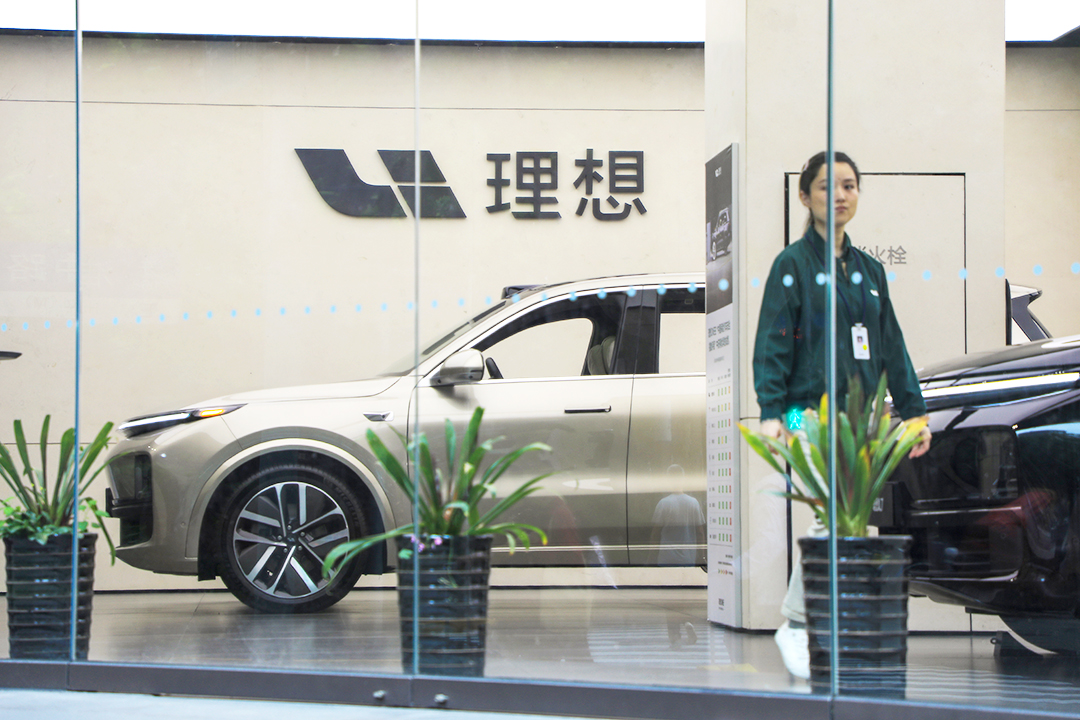EV-Maker Li Auto Dispels Rumors of Exclusive Uzbekistan Sales Network, Clamp Down on Russian Exports
Listen to the full version

Chinese electric-vehicle (EV) maker Li Auto Inc. has clarified it has not established any dealership network or official sales channels in Uzbekistan, after a photo was posted online supposedly showing company staff signing an agreement with a car dealer from the country.
The response from Li Auto also puts paid to reports that it would clamp down on parallel exports of its vehicles to Russia via the Central Asian country.

Unlock exclusive discounts with a Caixin group subscription — ideal for teams and organizations.
Subscribe to both Caixin Global and The Wall Street Journal — for the price of one.
- DIGEST HUB
- Li Auto Inc. denied establishing any official dealership or sales channels in Uzbekistan, refuting online claims of an agreement with a local dealer and dismissing rumors about restricting parallel exports to Russia.
- The company's clarification provided relief to parallel exporters who profit from re-exporting Chinese vehicles via grey import channels, especially to Russia where Western automakers have withdrawn post-Ukraine invasion.
- Despite not officially exporting overseas, Li Auto’s vehicles have been reaching foreign markets like Central Asia and the Middle East through private traders, with some cars ending up in Russia.
Li Auto Inc., a Chinese electric vehicle (EV) manufacturer, has denied establishing any official dealership or sales channels in Uzbekistan. This clarification came after an image circulated online suggesting that Li Auto was signing a sales agreement with an Uzbek dealer named Yas Auto. The company confirmed that the image and the associated claims were false [para. 1][para. 3].
The rumors had also suggested that Li Auto would restrict parallel exports of its vehicles to Russia via Uzbekistan starting May 1, and would disable the onboard systems of cars exported through unofficial channels. These rumors have been debunked by Li Auto's statement, which provided reassurance to parallel exporters who profit significantly from re-exporting Chinese-made vehicles through grey market channels [para. 2][para. 4].
Despite not officially exporting overseas, Li Auto’s vehicles have found their way into markets outside China, such as Central Asia and the Middle East, often ending up in Russia. This discrepancy between delivery numbers and mainland registrations was first noticed by Li Xiang, the founder and CEO of Li Auto, in July last year. By the end of the year, it was found that up to 3,000 vehicles per month were being re-exported at peak times [para. 7][para. 8].
The exit of Western automakers like BMW and Mercedes-Benz from Russia following its invasion of Ukraine created a vacuum that Chinese-made vehicles have filled. Li Auto’s high-end SUVs became particularly popular in Russia due to this shift in market dynamics [para. 9][para. 10].
Parallel exporters have capitalized on this opportunity throughout 2022 and 2023, making substantial profits by selling these vehicles at higher prices due to their scarcity in Russia. The cost savings from using low-tariff routes through Eurasian Economic Union (EAEU) countries are significant; for instance, re-exporting a $44,000 car through EAEU can save about 2 million rubles ($21,600) compared to direct shipment [para. 11][para. 12].
However, there are challenges with grey market imports in Russia; these vehicles are not adapted for the Russian climate and lack local after-sales services. In response to these issues and potential concerns from overseas customers regarding service support, Li Xiang announced plans in February to establish a direct sales channel in the Middle East for better control over software maintenance and spare parts supply [para. 13][para. 14].
Despite speculation about entering the Russian market directly, industry insiders believe that Li Auto is unlikely to do so soon. Therefore, its cars may continue reaching Russian consumers through parallel exports [para. 15].
- Li Auto Inc.
- Summary: Li Auto Inc., a Chinese electric-vehicle maker, specializes in high-end, large extended-range hybrid SUVs. Despite not officially exporting overseas, its vehicles have reached markets like Russia through parallel exports. The company debunked rumors of establishing an official sales channel in Uzbekistan and clarified that the related viral image was fake. Li Auto plans to set up a direct sales channel in the Middle East to provide better service for its international customers.
- Mercedes-Benz Group AG
- Summary: Mercedes-Benz Group AG, along with other Western automakers, withdrew from the Russian market following Russia's invasion of Ukraine. This exit allowed Chinese-made vehicles like those from Li Auto to fill the demand gap in Russia, as they became a popular alternative for consumers there.
- July 2022:
- Li Auto founder and CEO Li Xiang discovered a discrepancy between delivery and registration numbers, indicating parallel exports.
- End of 2022:
- Re-exports of Li Auto vehicles peak at 3,000 per month, with many ending up in Russia via Central Asia due to Western automaker withdrawal.
- Second half of 2022 to 2023:
- Parallel exporters capitalize on Russia's auto supply shortage, reaping significant profits.
- February 2023:
- Li Xiang announces plans for a direct sales channel to the Middle East to provide services to overseas customers.
- Before November 2023:
- Russian authorities impose new levies on cars imported from EAEU countries, effectively closing the parallel export loophole.
- MOST POPULAR






